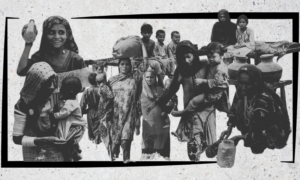In a belt-tightening move, the federal government has imposed a “complete ban” on specific expenditures, including the purchase of new vehicles, machinery, and state-funded medical treatment abroad, a Finance Division notification said this week.
The move comes as the government faces criticism for introducing a tough federal budget and raising energy costs in its bid to secure a $7 billion economic bailout from the International Monetary Fund (IMF)
without implementing effective and proportional expenditure control in the public sector.
Last month, the government decided to abolish regulatory bodies for devolved subjects, particularly health and education, eliminate transport facilities for all federal ministries and divisions, phase out non-executive staff at the Centre, and merge the aviation and maritime divisions with the defence ministry as part of its upcoming restructuring and austerity measures.
The notification dated September 4, seen by Dawn.com today, stated that with respect to the new budget, select expenditures will be completely prohibited to ease the burden on the overstrained national treasury.
It said that a ban will be imposed on the “purchase of all types of vehicles, with the exception of operational vehicles, such as ambulances & other medically equipped vehicles, fire fighting vehicles, buses & vans for educational institutions, solid waste vehicles and motorbikes.”
The federal government said that the procurement of machinery and equipment, except those required for hospitals, laboratories, schools, and the agriculture and mining sector, will also be prohibited.
The notification further said that there will be a complete ban on the formation of new governmental posts, including temporary ones, while posts lying vacant for three years will be abolished.
Meanwhile, medical treatments in foreign countries using government funds will also be prohibited, while there will also be a ban on “non-obligatory visits abroad where GoP funding is involved,” the notification added.
“All Ministries / Divisions are requested to disseminate the above instructions to all departments under their administrative control for strict compliance.”
A senior government official told Dawn last month that the final shape of the first phase of austerity and restructuring would be formally announced by the prime minister himself with the approval of the cabinet. He, however, added it was now almost clear that various regulatory councils of the subjects devolved under the 18th Amendment would have no place at the Centre.
There would be a complete ban on the appointment of staff to federal universities and hospitals except for academic staff that would be hired on a lump sum remuneration package without any future liability on the federal exchequer.
In addition, there would be a freeze on recruitment of grade 1-16 employees, i.e. support staff, across the federal government and gradually such posts would be abolished at the time of their vacancy. The officer cadre would be required to embrace artificial intelligence and digital tools instead of their heavy reliance on the support staff.
Provincial administrations have already implemented austerity measures to some degree. The Khyber Pakhtunkhwa finance department in April this year banned the creation of posts, the purchase of vehicles, participation in foreign training programmes and workshops, and the holding of seminars in five-star hotels when they implemented austerity measures.
The finance department said a ban had been slapped on foreign treatment at the provincial government’s expense, while extensions in the contractual period of project employees won’t be allowed unless justified by the relevant administrative departments and decided in consultation with it.
Meanwhile, the Sindh government day ago okayed the procurement of 138 luxurious double-cabin vehicles for its assistant commissioners posted across the province, it emerged on Wednesday. It has defended its decision to allocate Rs2 billion for the vehicles, saying ACs “are the backbone of provincial administration”.







